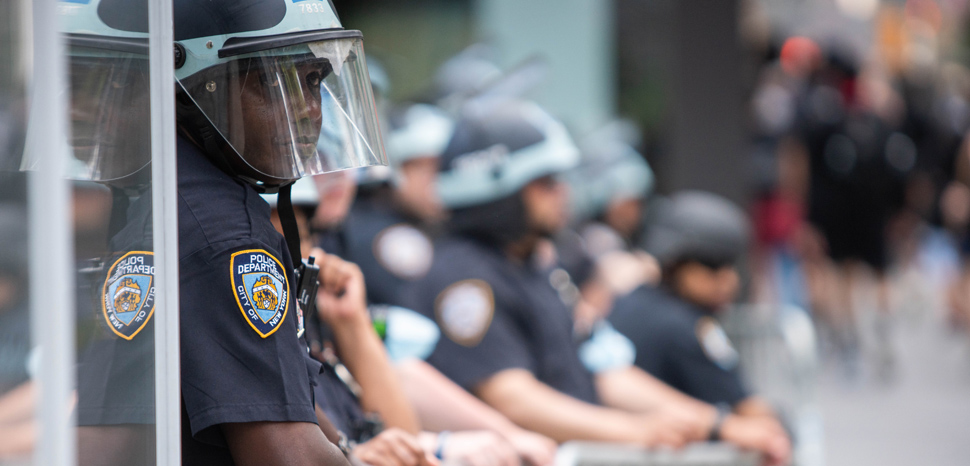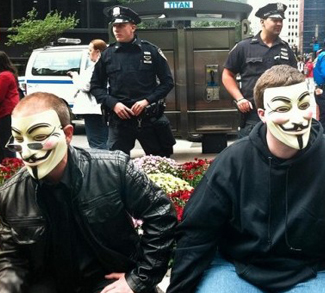It is rare that bold, uncompromising statements can be interpreted in their entirety as truthful. Depictions from resolute narratives are often easier to understand; both for the writer and the reader. As a consequence, simplicity and convenience replace accuracy and sincerity. Still, certain challenges of our time, based purely on the common moral values at stake, can only be described in such broad terms. Unequivocally, America’s justice system is frankly a reoccurring catastrophe. And qualified immunity is the instrument that keeps the cycle alive.
An exploration of the doctrine, as well the criminal justice system that it operates within, reveals concepts and ideas so foreign to our supposed national ideals, that many Americans would find themselves estranged and confused. Ironically, its premise is actually quite straightforward, as it is clearly uncomplicated by the notions of civil consideration or for that matter, constitutionalism. Plainly, it’s a reflection of the minds who created it.
‘Qualified immunity’ is a legal protection afforded to government officials, particularly those in law enforcement, that exists on the basis that violations of a citizen’s rights cannot be prosecuted in civil cases unless the court has a clear precedent established on the matter. Even if it can be proven that the official’s motivations were intentionally hostile, as long as no case exists on the books that clearly tackles how to punish that violation, the violator is granted immunity.
This precept derives from Harlow v. Fitzgerald (1982), a Supreme Court case taken up after years of aggressive civil rights expansion under Chief Justice Earl Warren. But this was a new court under the more measured and moderate Warren Burger. Appointed by President Richard Nixon, whose political policies were based on reestablishing a perceived lack of law and order, Burger had shown through previous cases that he was not as liberal as his predecessor when it came to the protection of civil rights. In the case’s opinion, the court wrote that qualified immunity could only be overcome if the official, “violate[d] clearly established statutory or constitutional rights of which a reasonable person would have known.”
However, since the decision, courts have generally taken up that defining sentence as open to interpretation. The common legal practice in these cases today is that a citizen is required to point to an already existing judicial decision with almost identical circumstances. The most obvious problem with this idea is that first-time violators, no matter how gruesome or outrageous their crime might be, are almost always let off on a warning, because there is no previous case that the judge can look back to.
In Pearson v. Callahan (2009), Chief Justice John Roberts and his court extended this legal logic even further. Previously, priority had been centered on if the government official had violated a constitutional right. If the judge concluded that no such breach had occurred, the case would then be based on precedent. However, in Pearson, the court’s opinion concluded that no such examination was necessary in all cases, and immunity could be granted based solely on precedent. If precedent could be established, then constitutional considerations could be brought. In an opinion by Judge Don Willett of the U.S. Court of Appeals for the Fifth Circuit in 2018, Willett explained in essence the process of legal qualified immunity boiled down to: “No precedent = no clearly established law = no liability.”
Essentially, legal precedent deferment (the idea that if the court has already decided a similar case, the current one will be decided on the same premise) has replaced U.S. constitutional law in the justice system as the main standard by which civil suits against the government are judged.
Needless to say, a system whose authors openly admit ignores the constitution as the first standard by which a case is judged can only be classified as a legal travesty. But Interestingly, this fairly new doctrine of precedent, which has basically replaced the bill of rights, ironically, broke precedent itself. For almost a century before the Burger and Roberts courts solidified qualified Immunity, US courts had traditionally held the government to the standard of both local and constitutional law.
In the Civil Rights Act of 1871, Congress established the right for Americans to sue law enforcement and the military for violating their rights. In Monroe v. Pape , the Supreme Court upheld the 1871 act by ruling it was perfectly legal for the Monroes, an African-American family living in Chicago, to sue a pair of CPD police officers who had broken into their home without a warrant, and then proceeded to make them stand naked in the living room while they searched the home. As Justice William Douglas wrote in the majority opinion, the law existed, “to give a remedy to parties deprived of constitutional rights, privileges, and immunities by an official’s abuse of his position.”
The diverse number of reasons why qualified immunity is employed by judges ranges from malice intent to downright judicial laziness. But the effects are always equally discouraging. In 2013, Texas police received a 9/11 call from a residential neighborhood claiming that an African-American male was shooting at mailboxes. As law enforcement arrived at the scene, the man in question took cover as a gun battle ensued. Within a few minutes, police spotted Gabriel Winzer, a mentally impaired 25-year old, riding his bicycle down the street with a toy gun strapped to his waist. Within six seconds of seeing him, the officers riddled the disabled man with 17 rounds of ammunition, tackled him and proceeded to tase him. Mr. Winzer died at the scene.
The case gained national attention for the brutality which had been used against a non-combatant and even the judge stated in his own opinion that Winzer’s constitutional rights had been blatantly violated. Regardless, he went on to conclude the officers were protected under qualified immunity because the court could not clearly find a precedent.
Barely a decade before, in 2004, Seattle police pulled over Malaika Brooks and her 11-year-old son for speeding as they were on their way to school. When asked to sign the ticket, Brooks refused because she felt the situation had been inaccurately assessed. Brooks believed her signature on the citation would make her ineligible to appeal the ticket, which the police failed to make clear was not the case. After refusing to sign, one of the officers asked her to step out of the car and pulled out a taser, asking her if she knew what it was. Brooks responded that she did not, but added she was 7 months pregnant. The officers conversed in front of her, casually taunting her as to which part of her body they should tase: “Well, don’t do it in her stomach,” one of them said, “do it in her thigh.” The officers restrained her and tased her three separate times before finally cuffing her.
The lawsuit she later filed seemed destined for success, because as with Mr. Winzer, the judges all agreed in their opinion that Brooks had her constitutional rights violated. They wrote that the officers broke clear laws based on their use of excessive force when it was unwarranted. However, those same judges also concluded a few paragraphs later that the policemen were protected due to standards laid out in qualified immunity.
It’s astonishing that anyone in the US legal system, as well as the country, could possibly find anything appealing about this doctrine. From every perspective, the viewpoint offers pivotal breaks in key philosophical and political opinions. Conservatives should balk at the tyrannical power it gives to big government. Liberals should fear the legitimacy it gives to the abuse of minority communities. Qualified immunity, regardless, continues to go unchallenged because few politicians have the stomach to attack a legal system explicitly designed to protect police. Nobody wants to be a victim of the dreaded, ‘anti-cop’ attack ad in the next midterm.
The fact remains that the doctrine, without even mentioning its clear disrespect for the Constitution, has become ineffective even by its mission-statement as it has ended up protecting bad cops more than good ones. With the now widespread use of tools such as body camera’s, arguably a lawful police officer requires no far-reaching legal doctrine at all. Is not a record of his/her actions alone enough to vindicate an officer of any potential crime? Why the added protection of an undemocratic, authoritarian get-free pass that exclusively helps villains in our government? These are all questions that should be asked of our judges. There can be no negotiation on this topic; qualified immunity is a prime example of trust in our government run amok.
The views expressed in this article belong to the author alone and do not necessarily reflect those of Geopoliticalmonitor.com or any institutions with which the author is associated.




